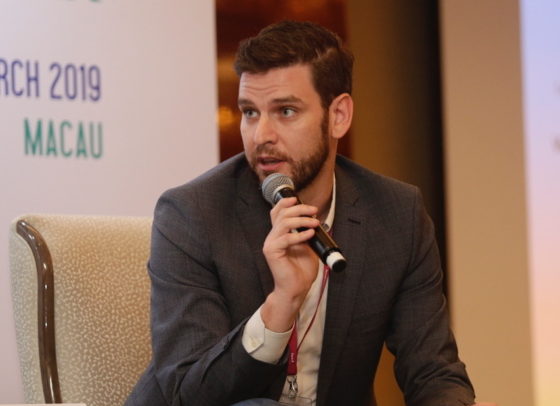Even before the global pandemic, we spotted the need for many sports organizations to strengthen balance sheets, by committing to more resilient commercial structures, diversifying revenue sources, and focusing on digital and data. The COVID-19 situation has accelerated this trend, where sports organizations are generating new value beyond their core activities. Those are some of the topics we will cover throughout this interview with Matt Pound, Marketing Director at the International Table Tennis Federation (ITTF).
1. COVID has had a huge impact on the entire Olympic movement, there have been many renegotiations and discussions happening around how to move forward. Can you tell us how ITTF has dealt with the commercial agreements that had in place?
It hasn’t been easy at all, and it hit the whole sporting industry, from the very top to the very bottom. Hosting an event involves many stakeholders and many commercial agreements — from broadcasters, to host city contracts, sponsors, data and digital deals.
Due to COVID, we had to cancel and postpone all of our events so we had to negotiate many of our commercial agreements.
The way we approached it was to discuss it one on one with each partner and all the stakeholders involved were very open and flexible when it was time to negotiate. We took into consideration that not only the sports industry was and is still struggling but our commercial partners were also struggling as the broadcasters get paid by the advertisers and the advertisers were not getting paid by their consumers because everyone’s locked up. The key summary was a lot of patience, a lot of flexibility, and a lot of just honest adult conversations to try to find the best solution for both parties and then hopefully, cross the fingers that normality will come back sometime soon.
2. A few years ago, ITTF decided to take the rights in-house, and last year, World Table Tennis was created, which is the commercial arm of the federation. Can you share with us the journey in the last few years and what caused that first shift internally?
In 2017, we bought our rights back from an agency that was managing them on our behalf. We took that move because we really felt that we were being undervalued, and not really developed in the way that we thought they should be, so we took them back in-house.
We worked very hard on creating more content and on building a very strong social strategy in order to create a better commercial product. So we packaged the product as well as we could and sold it as well as we could.
We managed to bring our commercial revenue from 6-7 million up to 18-19 million. Which meant a huge growth in the last three years. But being ambitious, the whole ITTF team wanted to grow even more.
Running a business inside an international federation comes with its difficulties. Back in the early 1900s, International Federations were built on volunteers to run the governance and the rules and help the grassroots to organize the competitions, but they weren’t really built to the fast, quick-moving commercial business that can adapt to different environments and really make those flexible business decisions that you need in the 21st century to grow the sport.
We thought very deeply about this and together with Deloitte, we looked deeply into how we were running our commercial business, how we were running our events, and how we were running our commercial program.
The outcome was that we should be doing it outside the International Federation. So we set up a special purpose vehicle called World Table Tennis, where we have put all of the ITTFs commercial rights in there, starting this year, 2021.
Although, we have completely rebranded and rethought how we’re running the business. We have got some external private investment into this special purpose vehicle and we’ve done the rebrand to reposition the sport as a professional sport.
3. The sport industry is not competing against itself anymore, it’s also competing against the entertainment industry, which we call it sportainment. Can you tell us more about it?
Definitely and that’s another reason why we set up World Table Tennis!
Not only the sport of tennis table but the whole industry has to take an entertainment focus because, at the end of the day, we are now also competing with Netflix, we’re competing with movies, we’re competing with Taylor Swift, we’re competing with circuses, there are many different things out there. So we really have to adapt or die on how we position our sport.
So for this year, our event structure will look completely different than ever before, as they will be very entertainment-focused.
By changing the event structure, we have also remodeled how we will be selling our rights, how we do innovative packaging– from our sponsorship deals to our digital rights, and most importantly how we can monetize our social better. We are now prioritizing how we collect the fans data, how we can monetize the fans data, and think much deeper on what that journey is.
THANKS TO OUR DIGITAL TRANSFORMATION EFFORTS, WE CAN CREATE A FULL PROFILE OF OUR FANS AND OFFER THEM THE CONTENT THEY CONSUME, THE SPECIAL OFFERS THEY WANT TO GET, AND OFFER A MORE AND BETTER-PERSONALIZED EXPERIENCE TO THEM.

4. Staying on the sportainment topic, what can we expect on the table tennis events in the future?
A traditional table tennis event, it was exactly that, a table tennis tournament where you put up tables, and then you put a couple of TV’s, cameras and you try to sell a ticket. But it was really the sport first, and then, you try to do all the commercial and entertainment around the actual sport. But we have flipped that.
We decided to think about what someone would do on a Friday night in the US or in Cairo or in Melbourne. Some of the questions we asked ourselves were: What are they willing to pay money for? And give up their valuable time to drive across the city and come to an event? What do they want?
In response to the questions, we’ve created four day-events, only night sessions with everyone super close to the table like the courtside seats in the NBA. Where there will be one hour of matches, then there will be a DJ or a magician or a dance. So they get a local piece of flavor, a lot of entertainment and education around table tennis through the sound system with innovative videos, fan engagement, play, meet and greets… So with this new table concept, we will be able to pack 2000-3000 people very close to the table.
5. You guys introduced this new concept of World Table Tennis and the investment coming in. Has that been like a catalyst for you being able to make these changes?
Yes! We wanted to get the investment in to really accelerate the process.
We could have waited 5-10 years, and had an organic growth with the commercial values gaining 10-20% every year, but we really wanted to revolutionize the sport with a bang. So that’s why we looked for some private money.
The previous years, the prize money was too low and players were not happy and at the same time, we were not inspiring the next generations of table tennis. So starting this year, the prize money will double and we will also see big commercial growth.
So from this year, 2021, we’re talking about double prize money, and the product will be much more attractive, which means better TV production, better TV figures, more media values on sponsorship, and then hopefully, broadcasters will start wanting to pay more, event host will want to pay more to run the event so hopefully, it’s that snowball factor. In conclusion, some private money was needed to really give that shot in the arm to get it going.
6. How do you guys look at the implementation of new technology?
We have different categories when it comes to technology implementation.
The first one is applied to broadcasting. Before COVID, we started doing some pilot tests with a Chinese company called Rigour used for ball tracking, speed tracking, and spins, which added a lot of value to our TV product. Also, this is something that the commercial department can monetize.
The second category comes in terms of fan interaction. Something we started doing was using social media to get that fan interaction and play games and give prizes and all this type of stuff.
Something to mention is that even though you are embracing different technology you have to pick and choose what is valuable and not valuable because if you pick everything then you can be losing a lot more money. So, you have to be strategic and choose what will add value to the whole ecosystem.
7. Digital transformation is playing an important role at your organization today. What are some of your expectations in the future?
To be honest, it’s been something that we’ve been very weak in the past. And this is part of our new strategy, to really build up an internal real data strategy.
We understand that it is important to collect every fan data touchpoints — from buying a ticket to signing up to our OTT, to buying a piece of merchandise, to being a member. Thanks to our digital transformation efforts, we can create a full profile of our fans and offer them the content they consume, the special offers they want to get, and offer a more and better-personalized experience to them.
What we will be doing, is to collect all that data to monitor it, knowing that the table tennis fan is aged between 25 to 35 and put it all together to go to our commercial partners and better serve their needs.



